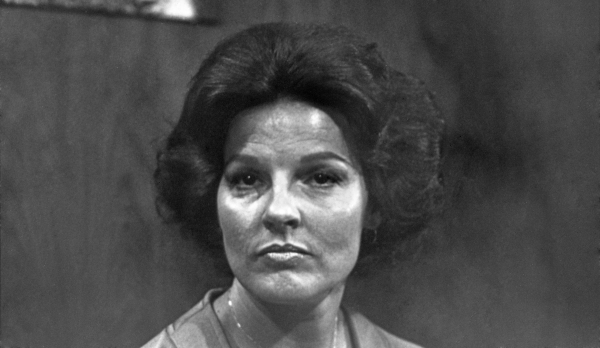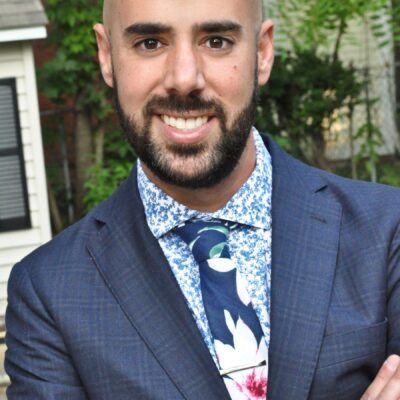Today, as before, we must continue the fight for social justice and equity for all.
The story isn’t exactly new. Some evidence suggests queer folks in Miami—mostly known or understood then as female or male “impersonators” or “pansies” who performed on stage—had formed small communities and networks by the mid-1930s. But it was mostly beginning in the next decade, after World War II, that a larger number of like-minded people presented themselves in gender non-conforming ways and increasingly saw themselves as belonging to a lesbian, gay, bisexual, transgender, and queer (LGBTQ) community. One of the issues they immediately faced was securing work and, should they find it, protections at that workplace.
By the 1950s, Miami politicians passed ordinances hoping to quash what they and others often called the “homosexual problem.” Many of the city’s most powerful players—whether politicians, journalists, law enforcement, judges, or the richest and most influential—sought to purge visible signs of a growing LGBTQ culture.
Passed in 1954, for example, Ordinance 5135 made it unlawful for “an owner, manager, operator or employee of a business licensed to sell intoxicating beverages to knowingly employ… a homosexual person, lesbian or pervert as the same are commonly accepted and understood.” In addition to legalizing employment discrimination, it prohibited bartenders from serving alcohol to LGBTQ people. Bar management and staff were also tasked with keeping them away from their establishments.
In the midst of considerable social and political upheaval, largely brought on by the American civil rights movement of the 1950s and 1960s and the Cold War, in 1956 the Florida legislature in Tallahassee created what became known as the Johns Committee. They formed this watchdog group, officially called the Florida Legislative Investigation Committee, to preserve Southern customs and weed out “subversives.” In their mind, this included Black activists, leftists, labor agitators, communists, and LGBTQ people.
The Johns Committee’s efforts helped strengthen and gave support to local anti-LGBTQ campaigns, including many that used scare tactics and intimidation to destroy people’s careers and keep them in the closet these policymakers built in the first place. The ACLU of Florida, along with various advocacy and litigation organizations, sounded the alarm about the danger of allowing the government to operate surreptitiously, which would ultimately result in unchecked investigative power of a legislative committee. The Johns Committee went unchecked for a decade, causing irreparable harm to the lives of LGBTQ people, Black activists, and progressives.
In the early 1960s, Johns Committee officials investigated a teacher at South Miami Junior High School after a “homosexual informant” revealed they had had a relationship. Another teacher at one of the city’s predominantly Black schools, Liberty City Elementary, was similarly implicated. So too was a professor at the University of Miami who didn’t attend—but was merely invited to attend—“a gay party.”
For many LGBTQ people—especially those most marginalized within the community, including people of color and trans folks—their livelihoods, housing, family, and safety seemed most tenuous and uncertain. They were just a gay bar raid away from arrest and total ruin. Or a love affair gone wrong could easily destroy their livelihoods. Or perhaps a cruel rumor or conjecture might prove to be their downfall.
The following decade, however, a Dade County (today, Miami-Dade County) ordinance tried to counteract all of this. Taking a page from the civil rights movement, a group formed in 1976 called the Dade County Coalition for the Humanistic Rights of Gays that sought to affect change for LGBTQ people through the electoral process. It endorsed a progressive politician named Ruth Shack, who won a seat on the Metro-Dade County Commission.
Commissioner Shack lived up to her promises and proposed a county ordinance that, using the language of the era, barred discrimination based on “affectional or sexual preference” in employment, housing, and public accommodations. While the commission ultimately passed the ordinance on January 18, 1977, the ordinance received major backlash from sectors of the community, including a growing coalition of religious fundamentalists and conservatives.
Spearheaded by local-based, national celebrity and Florida orange juice spokeswoman Anita Bryant, a grassroots campaign she and her team ultimately called “Save Our Children” emerged to overturn the progressive ordinance. Bryant and her followers argued that LGBTQ activists were exploiting the language of the era’s civil and human rights to receive special privileges—ones, they maliciously claimed, would place children in harm’s way. They managed to take the issue straight to the voters who, by way of referendum, overwhelmingly voted to do away with the progressive ordinance on June 7, 1977.

Bumper sticker for Anita Bryant’s “Save Our Children” campaign. Image courtesy of the Stonewall National Museum and Archives.
Although this represented a major defeat for LGBTQ people, it also energized a new generation of people to come out in high numbers and increasingly view their sexuality or gender non-conformity as a major political issue.
Local efforts to secure legislative protections that began in earnest in the late 1970s finally proved successful in 1998. That’s when Miami-Dade County commissioners prohibited discrimination based on sexual orientation and, as before, there was formidable backlash. Unlike in the 1970s, however, these proved futile and the ordinance remained in place. It took another sixteen years, in 2014, for the county to finally extend those same protections to transgender and gender non-conforming people.
While those protections operate on the local level, today, no statewide law exists that protects LGBTQ people’s rights in employment, housing, or public accommodations. A few months ago, on June 15, 2020, the U.S. Supreme Court ruled that Title VII of the Civil Rights Act of 1964 indeed includes sexual orientation and gender identity in its protective purview for employment discrimination. With the passing of Justice Ruth Bader Ginsburg and the restructuring of the U.S. Supreme Court, however, this decision, along with so many others, may hang in the balance.
Today, as before, we must continue the fight for social justice and equity for all, especially the dismantling of anti-Black animus and violence that remains embedded in our policies and culture. We must win this fight if we are, indeed, committed to saving our children.


